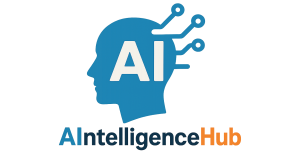
To guarantee ethical AI development, you should focus on understanding and mitigating bias, guaranteeing transparency and accountability, and implementing privacy-first approaches. Promote fairness by using diverse data sets and encourage diverse development teams. Establish robust AI governance and ethical guidelines, and engage the public in AI ethics education. These strategies help create AI systems that are not only technically sound but also socially responsible. Curious about how these practices can transform AI development?
Understanding and Mitigating Bias in AI Algorithms

While developing AI systems, understanding and mitigating bias in algorithms is essential for guaranteeing fairness and accuracy. You must identify bias detection techniques that reveal hidden prejudices within data sets and model outputs. Start by gathering diverse data and employing statistical tools to highlight discrepancies. This practice fosters algorithmic fairness by addressing potential bias sources early in the design process.
You should also regularly audit AI models post-deployment. Continuous monitoring helps catch bias that might emerge over time as data evolves. Leveraging feedback loops and refining models based on real-world performance guarantees they remain equitable. Additionally, integrating fairness constraints during algorithm development can proactively reduce bias. By prioritizing these steps, you contribute to building AI systems that are both fair and reliable.
Ensuring Transparency and Accountability in AI Systems
Transparency and accountability are two pillars essential for the ethical deployment of AI systems. You need to focus on these areas to guarantee AI systems act responsibly. One critical step is implementing data traceability, which helps you track the origin and journey of data through your AI systems. This clarity allows you to identify potential biases and errors quickly.
Next, conduct regular algorithmic audits to assess AI decision-making processes. These audits make certain algorithms perform as expected and remain free of unintended biases.
Lastly, communicate AI system functionalities clearly and accessibly. When users understand how AI works, trust and accountability naturally follow.
By focusing on these three areas:
- Data traceability
- Algorithmic audits
- Clear communication
You strengthen ethical AI practices.
Implementing Privacy-First Approaches in AI Development
Building on the foundation of transparency and accountability, safeguarding privacy is equally crucial in ethical AI development. Start by prioritizing data minimization, ensuring you collect only what’s necessary. User consent is not just a formality; it’s critical for ethical data collection. Make sure users understand what they’re agreeing to through user transparency. Employ encryption techniques to protect data during secure processing, reducing the risk of breaches. Adhere to privacy regulations to maintain compliance and trust. Anonymization methods should be employed to strip identifying details, preserving privacy without sacrificing data utility. By integrating these strategies, you can create AI systems that respect individual privacy, fostering trust and aligning with ethical standards. Remember, privacy-first approaches are not optional but imperative.
Promoting Fairness and Equity in AI Applications

Guaranteeing fairness and equity in AI applications is essential for fostering trust and minimizing bias. You must prioritize algorithmic fairness to prevent discrimination and unjust outcomes. Here’s how:
- Evaluate Bias: Regularly assess your AI systems for biases that could skew outcomes. This guarantees that decisions aren’t inadvertently disadvantaging any group.
- Transparent Processes: Clearly communicate how your AI models make decisions. Transparency fosters trust and helps users understand how equitable access is maintained.
- Inclusive Data: Use diverse datasets to train your AI, guaranteeing coverage across various demographics. Diverse data reduces the risk of biased results and supports algorithmic fairness.
Encouraging Inclusive and Diverse AI Development Teams
You need to prioritize forming AI development teams that reflect gender equality, cultural perspectives, and diverse backgrounds. By doing this, you guarantee that AI systems are more representative of a global user base, which can lead to more ethical and innovative solutions. An inclusive team doesn’t just check boxes; it enriches the creative process and mitigates biases in AI outcomes.
Promoting Gender Equality
Although AI technology continues to evolve, fostering gender equality within AI development teams remains a critical challenge. You must guarantee balanced gender representation and implement inclusive policies to create an equitable environment. Consider these strategies:
- Recruitment and Hiring: Actively seek diverse candidates by reaching out to underrepresented communities. Use gender-neutral language in job postings.
- Mentorship and Development: Encourage mentorship programs that focus on empowering women in tech, providing them with growth opportunities and career advancement.
- Workplace Culture: Promote a culture where everyone feels valued. Regularly evaluate and address any biases in team dynamics or decision-making processes.
Embracing Cultural Perspectives
Building on the foundation of gender equality, fostering a diverse array of cultural perspectives within AI development teams can greatly enhance innovation and problem-solving capabilities. By encouraging cultural sensitivity, you guarantee that AI solutions resonate with users worldwide. Global perspectives allow you to anticipate varied user needs and avoid biases that might otherwise go unnoticed.
| Benefit | Description |
|---|---|
| Innovation | Diverse teams bring unique ideas and solutions. |
| Problem-Solving | Varied perspectives lead to thorough solutions. |
| Cultural Sensitivity | Understanding different cultures reduces biases. |
| Global Perspectives | Anticipating global needs enhances AI relevance. |
Engaging with team members from different cultural backgrounds can offer insights that drive meaningful AI solutions. Prioritizing these perspectives not only fosters inclusiveness but also aligns AI outputs with diverse global communities, maximizing both ethical standards and effectiveness.
Supporting Diverse Backgrounds
In fostering an inclusive and diverse AI development team, one must recognize that varied backgrounds enrich the collaborative environment and drive innovation. Diverse teams bring unique perspectives, enhancing cultural representation and socioeconomic diversity in AI solutions. To support this, consider these strategies:
- Recruit Broadly: Cast a wide net in hiring, guaranteeing recruitment efforts reach underrepresented communities, thereby promoting cultural representation and socioeconomic diversity.
- Foster an Inclusive Culture: Create an environment where all voices are valued. Encourage open dialogue and provide platforms for diverse perspectives to shape AI development.
- Offer Development Opportunities: Provide training and mentorship programs. This guarantees team members from different backgrounds have equal opportunities for growth, which can lead to more innovative solutions.
These steps guarantee that AI development becomes more reflective of the world’s diversity.
Establishing Robust AI Governance and Ethical Guidelines
To guarantee artificial intelligence systems operate ethically and effectively, robust AI governance and clear ethical guidelines must be established. You should focus on creating extensive policy frameworks that define acceptable behaviors and decision-making processes for AI technologies. It’s essential to implement regular ethical audits, which will help identify potential risks and guarantee compliance with established standards. By proactively addressing ethical concerns, you mitigate the chances of AI systems causing harm or acting unpredictably.
In addition, consider forming cross-functional teams dedicated to overseeing AI ethics, combining expertise from diverse fields. This approach guarantees that multiple perspectives inform your governance structures. Remember, the goal is to create AI systems that are not only technically sound but also align with societal values and ethical standards.
Fostering Public Engagement and Education on AI Ethics

- Educational Resources: Develop online courses and interactive seminars to demystify AI ethics for diverse audiences.
- Collaborative Projects: Engage in stakeholder-driven initiatives and youth programs that focus on real-world AI challenges.
- Awareness Campaigns: Launch campaigns to stimulate ethical debates and foster a culture of transparency and responsibility.
Frequently Asked Questions
How Can AI Ethics Be Maintained in Rapidly Evolving Technological Landscapes?
To maintain AI ethics in rapidly evolving tech landscapes, you should focus on AI Governance and Ethical Frameworks. Create adaptable frameworks that evolve with technology. Regularly update policies and guidelines to reflect new advancements. Engage diverse stakeholders to guarantee inclusive perspectives. Implement transparent oversight mechanisms to monitor AI systems. Encourage continuous learning and dialogue within your organization. By doing so, you’ll assure AI development aligns with ethical standards, fostering trust and responsibility.
What Role Does AI Play in Addressing Climate Change Ethically?
Imagine AI as both a tool and a steward in the fight against climate change. You can’t overlook its potential to reduce the AI carbon footprint through sustainable data usage. By optimizing energy consumption and refining data processes, AI helps minimize environmental impact. It guides renewable energy deployment and predicts climate patterns, ensuring ethical practices align with ecological needs. AI’s role isn’t just supportive; it’s transformative, reshaping how you tackle climate challenges.
How Should Ethical AI Principles Be Integrated Into Existing Corporate Policies?
To integrate ethical AI principles into corporate policies, you should examine current policy frameworks and identify gaps where AI ethics can enhance corporate transparency. Start by establishing clear guidelines that align with your company’s values and legal standards. Regularly update these frameworks to reflect evolving ethical considerations. Promote a culture of accountability by training employees on ethical AI use, ensuring that transparency and responsibility are embedded in daily operations.
What Are the Challenges in Aligning AI Ethics With International Regulations?
Steering through AI ethics is like solving a Rubik’s Cube blindfolded. You face regulatory discrepancies that make aligning with international regulations a herculean task. Each country has its own set of rules, which can clash with your ethical standards. Add cultural differences to the mix, and it becomes even more complex. You must analyze these nuances precisely, ensuring your AI policies resonate globally while adhering to diverse legal landscapes.
How Can Small Businesses Implement Ethical AI Practices Effectively?
To effectively implement ethical AI practices in your small business, focus on community engagement and smart resource allocation. Engage with your community to understand their needs and concerns, guaranteeing your AI solutions are aligned with ethical standards. Allocate resources wisely by investing in robust ethical frameworks and training for your team. This approach not only fosters trust but also guarantees that your AI practices are sustainable, responsible, and beneficial for everyone involved.
Conclusion
Incorporating ethical strategies in AI is essential for a fairer future. Did you know that AI systems can be up to 42% more accurate when developed by diverse teams? This highlights the importance of inclusivity in AI development. By understanding bias, guaranteeing transparency, and prioritizing privacy, you’re not just building better AI—you’re shaping a more equitable world. Establishing governance and engaging the public guarantees accountability, driving AI towards ethical integrity and societal benefit.


